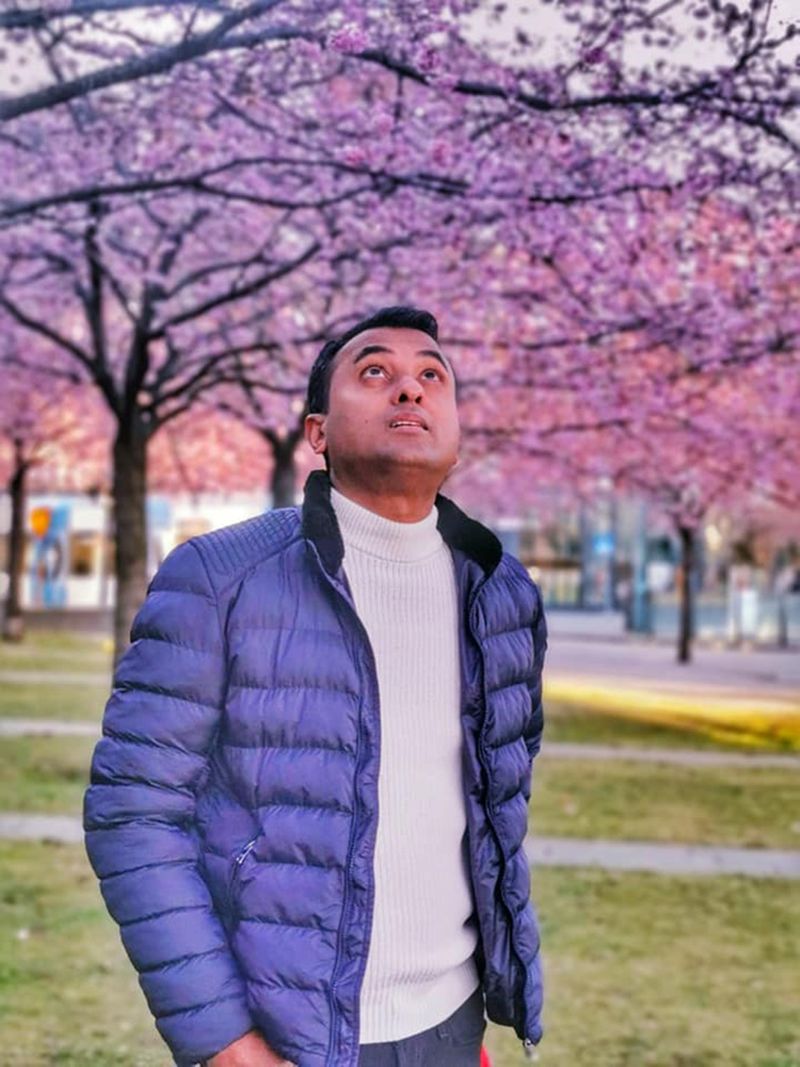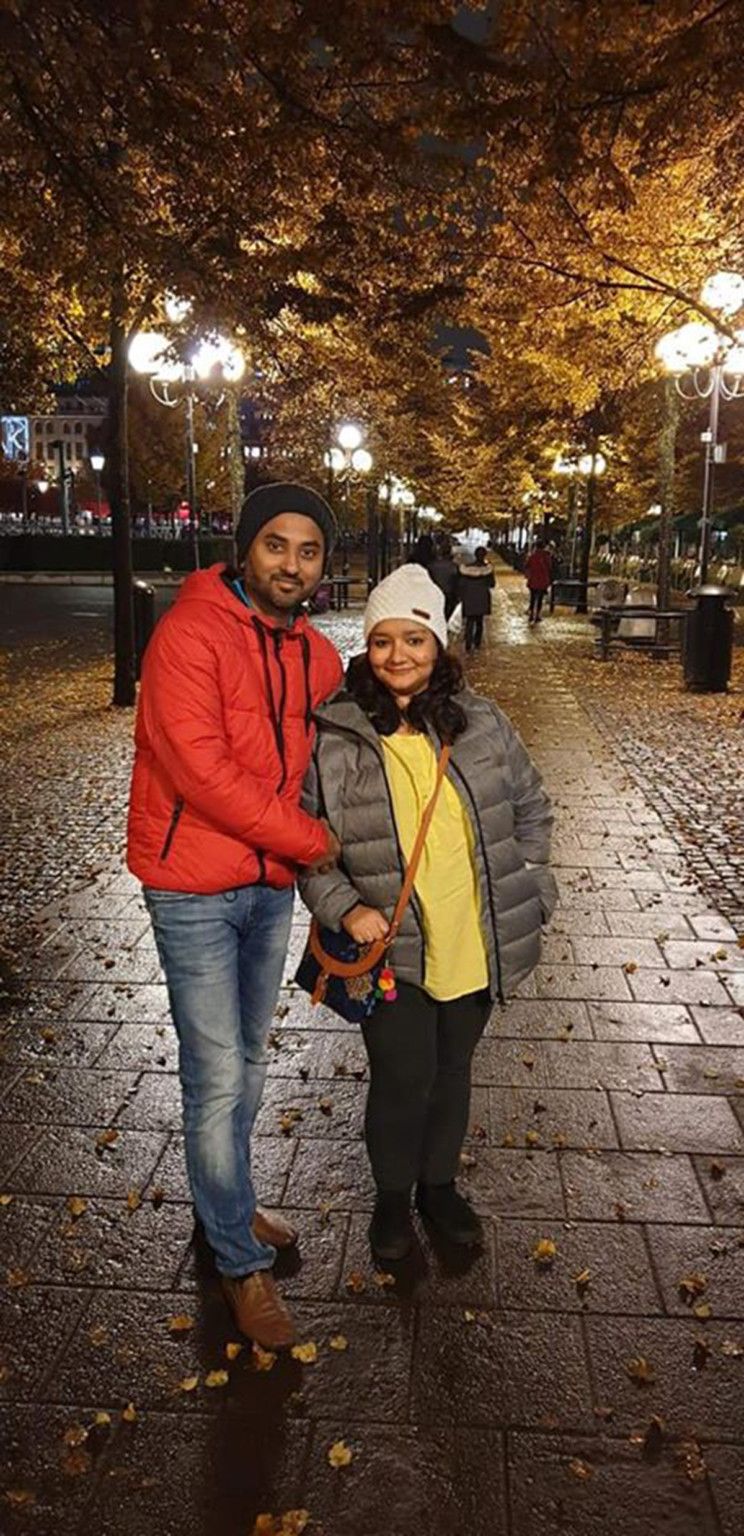
It’s been a week since Sweden resident Kajal Pradeep Bhatia and her husband Pradeep Nair have stepped out of their home in Stockholm.
Living in an apartment complex outside the hustle bustle of the city, the Indian couple treated themselves to an outing to take in the seasonal cherry blossoms in bloom at Stockholm’s Lumapark on Nair’s birthday, which was celebrated on April 7.
If you are wondering how anyone is taking in the sights amid a global pandemic, then you haven’t heard of Sweden’s stance on combating the coronavirus through its low-scale approach, which builds up from the concept of ‘herd immunity’.
As European countries clamp down on travel and movement within cities, with Italy and Spain being two of the worst hit, Sweden is battling the deadly virus in its own way by pushing the cause for herd immunity — an idea that if enough people of the population are immune to a virus, you could be immune as well due to having overcome the infection already or having been vaccinated against it.
The idea grabbed headlines last month when UK Prime Minister Boris Johnson suggested the country toe this line; this was, of course, weeks before Johnson himself was tested positive for COVID-19 and landed in the ICU. The British PM has been discharged from the hospital since after making a recovery.
Dutch Prime Minister Mark Rutte also struck a similar note in March, saying at a press conference: “We can slow down the spread of the virus while at the same time building group immunity in a controlled way.”
For couples such as Bhatia and Nair, who’ve been residents of Sweden for the past four years, the idea is being taken with a pinch of salt.

“The Swedes are different from other countries through their behaviour, their way of living and their outlook on life,” Bhatia tells Gulf News over the phone. “The natural order here is being socially distant with one another. The majority of households here are single family units, with a regular trip to the bus stop involving us standing away from one another even while queuing up.”
Husband Nair agrees, saying that such a way of living has immensely helped build the overall health of the general population.
“We follow a standard of living here that few have the luxury to follow. There’s fresh air, organic food readily available, nature trails for us to enjoy on the weekends and everyone enjoys the outdoors,” he says.
LOW-SCALE APPROACH

Yet, the couple, both in their early 40s, continue to proceed on the side of caution as the pandemic continues its deadly path. According to Worldometers.info, Sweden has recorded 10,483 coronavirus cases until April 13, with 899 deaths and 381 recoveries. Yet, if you look at its graph, the rate of daily cases appears to be dropping exponentially. Does this mean the idea is working?
In a recent interview with AP, Swedish Health Minister Lena Hallengren clearly stated: “We have never had a strategy for herd immunity.”
This is perhaps why Sweden has started out with a softer approach to the pandemic that involves public schools for young children remaining open, along with cafes, restaurants, malls and tourists spots. However, high schools and universities remain closed, while gatherings of 50 people or more are currently banned. Residents over 70 have also been asked to stay indoors, with retirement homes banning visitors, while friendly neighbours offering to help out with the shopping.
“Not everyone agrees with the government’s stance here but every country has its own way of dealing with the crisis,” says Nair. “We attribute the herd immunity to Sweden but isn’t every other country also following a herd of nations that are adapting new measures daily to combat the disease?
“Sweden is getting unwanted attention because here, we are looking at balancing the pandemic with the economy. If we give away to pressures, then economically, we will struggle. Even before the pandemic his us in March, the economy was stagnating. The government here is adopting a balanced approach and you can’t fault it.”
Yet, despite a measured approach, the pandemic has affected the economy of Sweden, with the AP reporting that during the first week of April, 25,350 Swedes registered as unemployed, according to the Stockholm Chamber of Commerce — a larger increase than during the 2008 financial crisis.
Even as US President Donald Trump has clearly scoffed at the Swedish approach, stating the country is “suffering very, very badly,” Anders Tegnell, the country’s chief epidemiologist, insists Sweden’s approach make sense. In a recent interview with AP, Tegnell argued that while Sweden might have more infections in the short term, but it will not face the risk of a huge infection spike once its lockdown is lifted.
“I think both Norway and Denmark are now very concerned about how you stop this complete lockdown in a way so you don’t cause this wave to come immediately when you start loosening up,” he tells AP.
SWEDEN’S CASE

In the case of Bhatia and Nair, the couple have opted to stay close to home until the pandemic loses steam, choosing diplomacy when asked to share their thoughts on the herd immunity concept Sweden has adopted.
“The herd mentality can’t work with all countries. For nations such as the US that have historically dealt with obesity and general health issues, they are forced to adopt stricter measures because the overall health of the country has not been up to par,” says Nair. “Sweden has a population that is statistically one of the fittest in the world, with the average life expectancy over 70 years as people live longer here.”
However, the couple isn’t entirely in agreement with the stance either. “Over the last few years, Sweden has had an influx of expats and migrants who have made the country their home. While a certain sense of responsibility and tradition may be witnessed in the smaller towns and cities, the metros such as Stockholm don’t offer that same concept anymore,” states Nair. “Being a four-year resident here, my immunity is still compromised compared to long-term living residents and it is my responsibility to ensure I take the necessary precautions to protect myself and my wife.”
While the couple largely limit their outings to grocery runs and helping the neighbours with their shopping, they spend afternoons wistfully looking down on the community playground where the laughter of young children playing in the spring sunshine carries forth.
“We don’t know how long this will continue; we don’t know how long we can,” says Bhatia. “But to maintain safety and protect those around us, we will do the responsible thing. It’s the only way forward now.”








